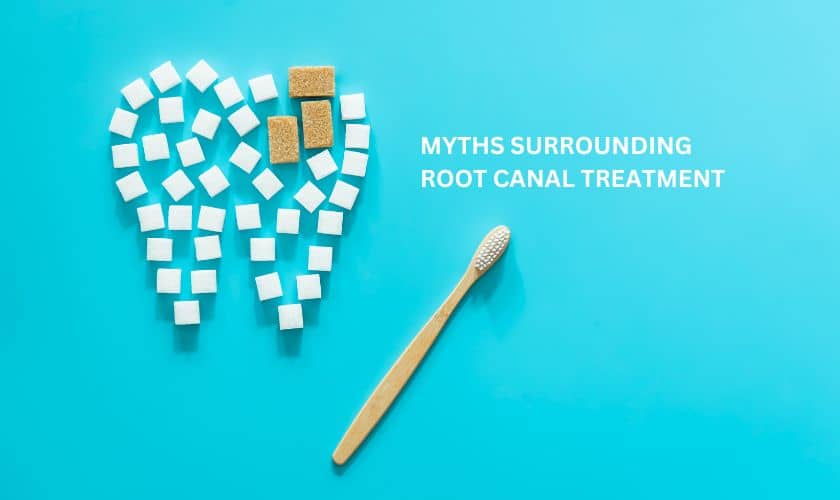
Top 10 Myths Surrounding Root Canal Treatment
Are you scared of root canal treatment? Have you been putting off getting a root canal because of myths surrounding the procedure? It’s time to debunk those false beliefs and learn the truth about this common dental treatment. In this post, we’ll explore the top 10 myths about root canals that might be holding you back from receiving necessary care for your teeth. Don’t let misinformation prevent you from achieving optimal dental health!
Myths Surrounding Root Canal Treatment
Root canal treatment is one of the most commonly performed dental procedures. It is also one of the most misunderstood. There are many myths and misconceptions surrounding root canal treatment, which can make patients uneasy about the procedure.
Myth #1: Root Canal Treatment is Painful
Root canal treatment is often thought to be a painful procedure. However, with today’s advances in dental technology, root canals are usually no more uncomfortable than having a routine filling done. Your dentist will numb the area around the tooth before beginning the procedure. You may experience some pressure during the procedure, but you should not feel any pain. If you do feel pain during your root canal treatment, be sure to let your dentist know so they can adjust accordingly.
Myth #2: Root Canals Take a Long Time to Complete
One of the most common myths about root canals is that they take a long time to complete. This simply is not true. Root canal treatment can be completed in one or two visits to the dentist, depending on the severity of the infection. The average root canal takes about an hour to complete.
Myth #3: Teeth After Root Canals are Unstable or Easily Damaged
It’s a common misconception that teeth after root canals are unstable or easily damaged. The truth is, root canal-treated teeth are actually stronger and more durable than untreated teeth. With proper care, your root canal-treated tooth can last a lifetime.
Myth #4: The Tooth May Have To Be Removed If a Root Canal Fails
One myth that we’ll address is the idea that if a root canal fails, the tooth will need to be removed. This is simply not true! If your root canal fails, it’s usually because there was an undetected crack in the tooth or because the tooth was too damaged, to begin with. In either case, removing the tooth is not necessary. Your dentist will simply re-treat the tooth or, in some cases, place a crown on it to protect it from further damage.
So, if you’ve been told that you need a root canal, don’t be afraid! It’s a safe and effective way to save your natural teeth and keep them healthy for years to come.
Myth #5: All Teeth Require Crowns After a Root Canal
Root canal treatment is often necessary when the nerve of a tooth becomes damaged or infected. Once the damaged nerve is removed, the tooth is no longer alive and does not feel pain. However, it is still structurally sound. In most cases, a simple filling will suffice to restore the tooth. In some cases, a crown may also be recommended to help protect the tooth from further damage.
Myth #6: Root Canal Injuries Affect Adj
There is a common misconception that root canal injuries can affect the adjacent tooth. This is simply not true. The root canal procedure involves removing the damaged or infected tissue from inside the tooth, and the surrounding teeth are not affected.
Myth #7: You should Get Antibiotics Before a Root Canal
The truth is, root canals are almost always successful and there is no need to take antibiotics beforehand. In the rare case that an infection does occur, your dentist will prescribe the appropriate antibiotic.
There are many reasons why someone might suggest that you take antibiotics before a root canal, but there is no scientific evidence to support this claim. If you are worried about developing an infection, talk to your dentist about your concerns. They will be able to put your mind at ease and explain the risks involved in root canal treatment.
Myth #8: Root Canals are Unpleasant
It’s a common misconception that root canals are unpleasant. In reality, root canals are no more painful than having a filling placed. With today’s technology and advances in dentistry, root canals are typically very comfortable procedures.
Myth #9: Root Canals Cause Systemic Disease
One of the most common myths surrounding root canal treatment is that the procedure can cause systemic disease. This is simply not true. Root canals are performed to save teeth that have been badly damaged or infected, and they are not linked to any systemic diseases. The only time you might need to worry about the systemic disease is if you already have an infection in your body that has spread to your teeth. In this case, you would likely need more aggressive treatment than just a root canal.
Myth #10: Root Canals Involve Substantial Recovery Time
Root canals are often thought of as a painful, lengthy process that requires a long recovery time. However, root canal procedures have come a long way in recent years and most patients report little to no discomfort during or after the procedure. In fact, many patients return to their normal activities immediately following treatment.
FAQ
Root canal treatment (RCT) is a dental procedure to remove the infected or damaged pulp from inside the tooth. This helps to save the tooth and prevent further damage.
It can help to save a tooth that would otherwise need to be extracted. It can also help to prevent further damage to the tooth and surrounding tissues.
There is a small risk of infection associated with root canal treatment. There is also a risk of damage to the surrounding teeth and tissues. In rare cases, root canal treatment can lead to death.





